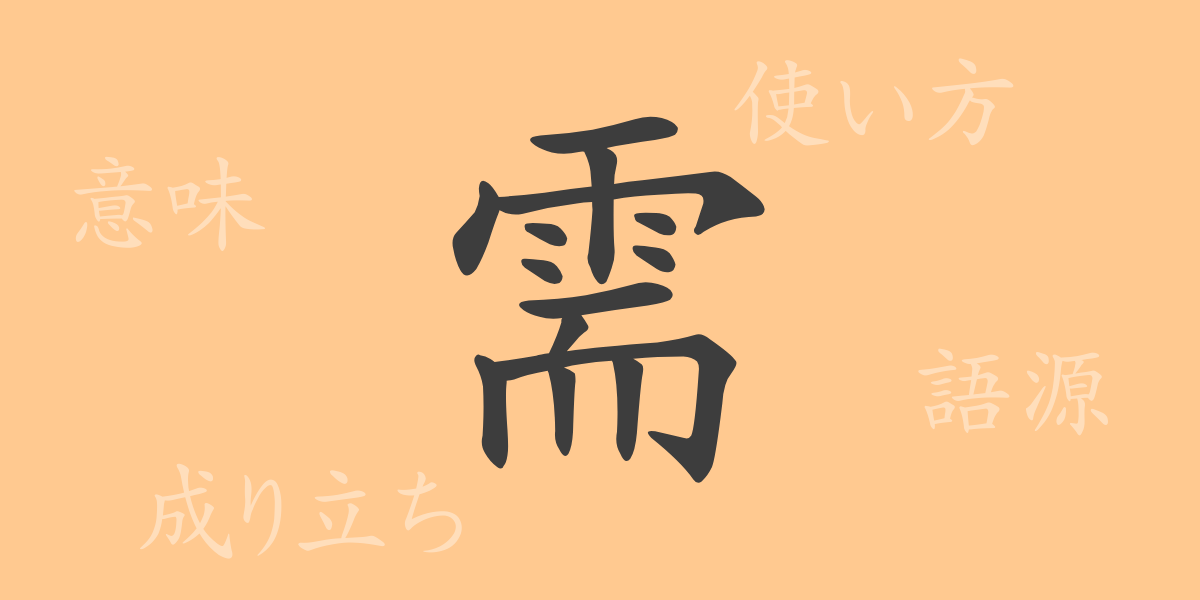The writing culture of Japan is profound, with commonly used kanji characters frequently appearing in daily life. One such kanji, “需(じゅ),” plays a particularly important role in the fields of business and economics. This article delves into the meaning, origin, and usage of the character “需(じゅ),” exploring its rich expressive world.
Origin of 需(じゅ) (Etymology)
The kanji “需(じゅ)” originated from ancient China. Its form combines the symbol for rain, representing the clouds that bring rain, with “而(じ),” meaning to stay. This combination symbolizes the strong demand and longing for rain. Over time, this kanji was adopted into Japanese, where it is used in various contexts today.
Meaning and Usage of 需(じゅ)
The kanji “需(じゅ)” means “to require” or “to demand.” In economics, it is often used to represent “demand” in the market, indicating the level of consumer desire for goods and services. It also refers to a state of necessity.
Readings, Stroke Count, and Radical of 需(じゅ)
The kanji “需(じゅ)” has specific readings, a stroke count, and a radical.
- Readings: The on’yomi (音読み) is “ジュ,” and there are no kun’yomi (訓読み).
- Stroke count: “需(じゅ)” has a total of 17 strokes.
- Radical: The radical is 雨(あめかんむり), which relates to rain.
Idioms, Phrases, and Proverbs Using 需(じゅ)
Idioms and phrases containing “需(じゅ)” reflect its broad range of meanings. Here are some examples:
- 需要供給(じゅようきょうきゅう): Refers to the relationship between supply and demand in the market for goods and services.
- 需要過多(じゅようかた): A state where demand exceeds supply.
- 不可欠需(ふかけつじゅ): An essential and indispensable demand.
Conclusion on 需(じゅ)
The kanji “需(じゅ)” represents an indispensable concept in our lives and economic activities through its usage and the idioms it encompasses. It is often used to indicate the balance of supply and demand in the market, showing its significance not only in the world of economics but also in various everyday scenes. Understanding the deep meaning of this character allows us to develop a richer expressive ability.

























